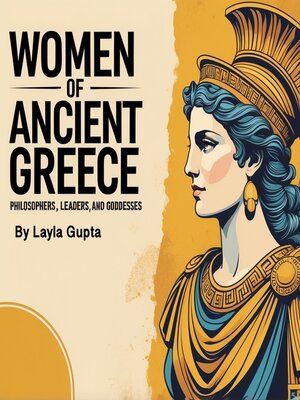Women of Ancient Greece
audiobook (Unabridged) ∣ Philosophers, Leaders, and Goddesses
By Layla Gupta

Sign up to save your library
With an OverDrive account, you can save your favorite libraries for at-a-glance information about availability. Find out more about OverDrive accounts.
Find this title in Libby, the library reading app by OverDrive.



Search for a digital library with this title
Title found at these libraries:
| Library Name | Distance |
|---|---|
| Loading... |
The ancient Greeks created a rich tapestry of gods and goddesses that embodied the complexities of the human experience, and among them, the divine feminine figures stood out as powerful symbols of strength, wisdom, love, and conflict. The goddesses of ancient Greece were not merely passive figures but rather active forces that shaped both the natural world and the lives of mortals. Their stories reveal a deep understanding of the roles and expectations of women, as well as the power dynamics that governed ancient Greek society.
Among the most prominent of these divine figures was Athena, the goddess of wisdom, warfare, and craft. Athena was a paradoxical figure, blending intelligence with martial prowess. As the patron goddess of Athens, she embodied the city's values of logic, strategy, and civic duty. Her virginity, a defining characteristic, symbolized purity and independence, and her role as a warrior was unique in that it was based on strategic thinking rather than physical aggression. Athena's guidance was sought not just in matters of war but also in philosophy and the arts, making her one of the most revered figures in the pantheon.
In stark contrast to Athena's intellectual and strategic prowess, Aphrodite, the goddess of love, beauty, and desire, represented the compelling and often uncontrollable forces of attraction. Aphrodite's influence was not confined to the physical realm; she also governed the emotional and relational dynamics of gods and mortals alike. Her beauty and charm were legendary, capable of inciting both creation and destruction. Through her, the Greeks understood love not just as a harmonious union but also as a force that could disrupt order, as seen in the myth of her involvement in the Trojan War. Aphrodite's power was as much about seduction as it was about the more fragile human emotions, teaching that love could be both transcendent and tumultuous.







